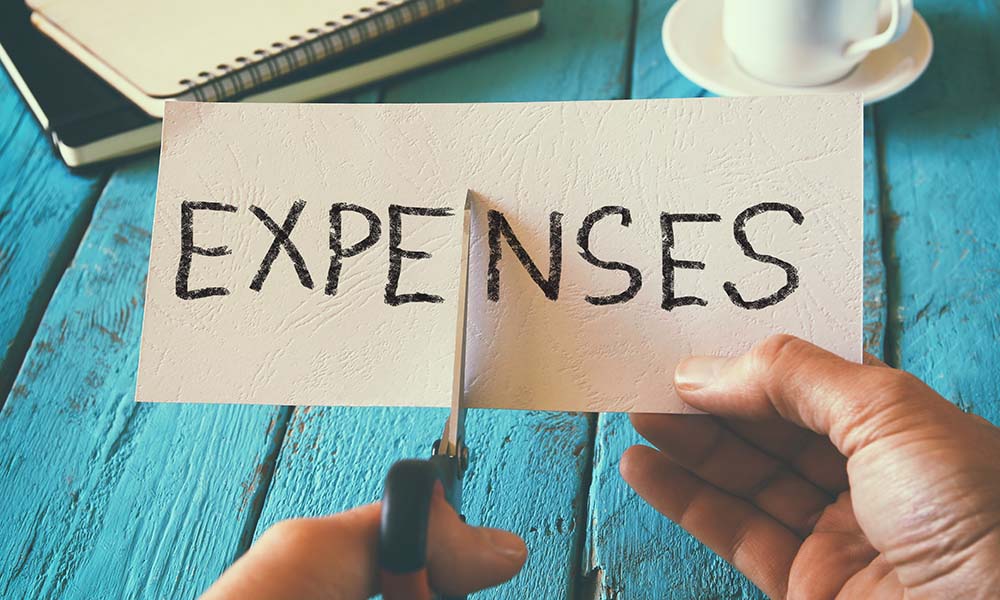Eight Expense Management Tips for SMBs
Back to all Small Business guides

Managing expenses can be a challenge for smaller businesses, with many still relying on basic tools such as Excel spreadsheets and even pen and paper to record this vital information. Fortunately, it doesn't have to be this way, and a few simple tips can help save you time, make your finances more accurate and even benefit your bottom line.
1. Establish a formal expense management document
Perhaps the best way to get your business expenses in order is to have a clear - and communicated - expense management policy in place. This will not only help to control costs as employees will be clear on what is and what is not reimbursable, but it will also mean that expenses are claimed back within an agreed time. This, in turn, will help with record-keeping and cashflow. The policy should be firm, fair and simple but needs to collect the relevant data for HMRC, such as receipts or mileage details. Best practice would also involve having a clear timeframe for paying expenses and submitting them.
It should also be noted that this document should be revisited regularly to ensure it continues to be fit for purpose as your business grows.
2. Record expenses as you incur them
While a clear schedule for submitting expenses will help make management less onerous, recording expenses as you incur will help even more. Setting time aside once a month – or even weekly – will help to ensure you don't miss anything and also make it easier to spot if you're overspending at any time.
3. Group expenses into categories
As you're recording your expenses, it's also good practice to group them into categories, such as stock, wages or mileage. This will allow you to analyse particular categories and keep track of where most of your spend is allocated. Be consistent in how you assign your expenses though; otherwise, this becomes irrelevant.
It is also a good idea to create a specific form to record each business journey for mileage claims. This should include the 'from' and 'to' location and number of miles travelled.
4. Track your expenses regularly
While ensuring you record your expenses accurately and regularly is crucial, good expense management doesn't stop there. Monitoring expenses regularly can help you control costs and identify how much is being spent and on what. All of this can make you more financially aware and give you a better idea of company cash flow. It may also be worth looking into preferred suppliers if you notice high or varied spending in specific categories.
5. Make a note of recharges
If you pass on costs to your clients, it's essential to keep track not only of what has been spent but which client it should be attributed to, so be sure to note this when you record the expense.
6. Use technology to manage your records
Regularly adding, updating and checking expenses can be time-consuming and may not always be top of your to-do list, so look into technology and automation options that can help. Investing in digital tools such as accounting and expense management software has several benefits, from cost savings and sustainability to efficiency and security.
You will no longer be recording financially sensitive information on an unsecured spreadsheet by going digital. You'll be able to access files more quickly, search for specific transactions and access information in the cloud wherever you may be.
Also, consider mobile receipt capture, whereby you take a picture of your receipt and store it on your device, rather than keeping paper versions. Some banking services even let you upload your receipts to their apps and attach them to the purchase you've made for even easier recording.
7. Avoid petty cash
Embracing digital can also extend to how you and your employees cover any expenditure. Moving from petty cash to company cards makes it easier to track what's been spent and means personal, and business cash aren't at risk of getting mixed up.
8. Keep personal, and business expenses separate
Indeed, keeping personal and business finances separate should be a priority. Where possible, it is much better to avoid using personal accounts, cards or cash to make business-related purchases. It makes the accounting process much cleaner and will help give you a more accurate impression of business cash flow, income and expenditure.
While managing expenses may never be your favourite task, it's an essential part of making sure your accounts are accurate and up to date for HMRC, as well as ensuring you have a clear grasp of your business's financial situation.
The right accounting software can make this much easier. AccountsPortal can be linked with company bank accounts to record transactions accurately. You can connect all of your bank accounts to AccountsPortal via Plaid in a secure manner. Once connected, Plaid will automatically refresh your transactions four times a day, after which they will be seamlessly imported into AccountsPortal, helping keep your accounts up-to-date and resulting in more accurate and timely information. It takes less than two minutes to get up and running with fully integrated bank feeds that will save you a significant amount of manual data entry.